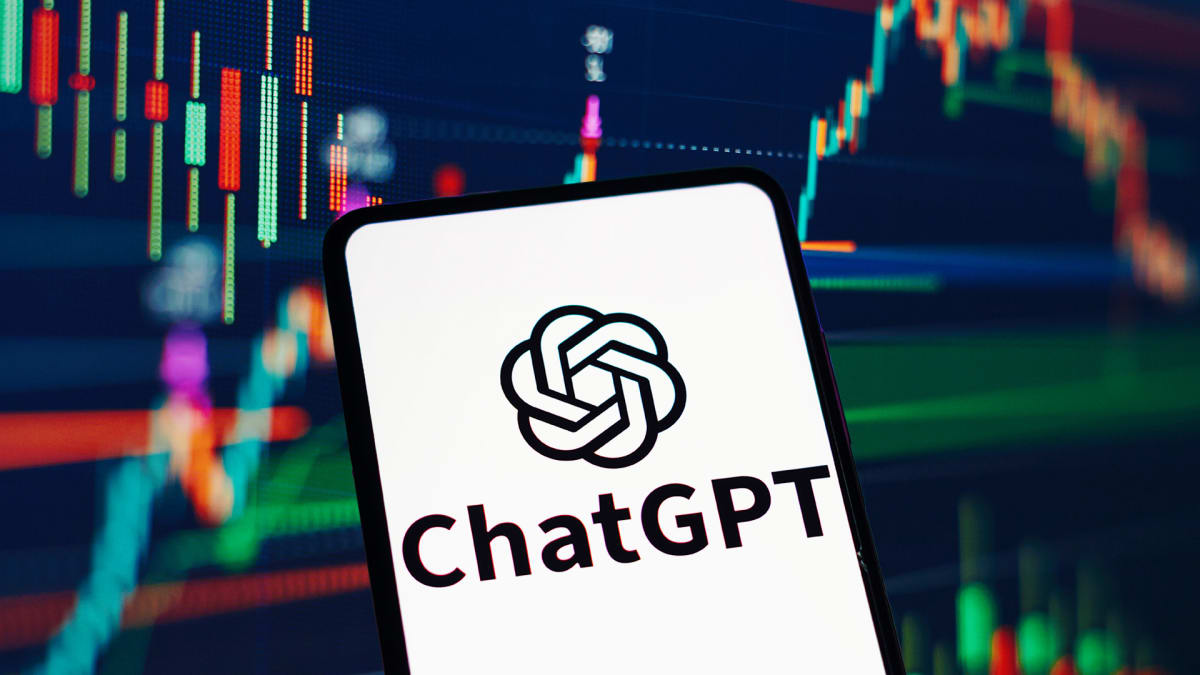
Since ChatGPT started growing in popularity at the end of 2022, there has been no shortage of questions and requests somebody tried to ask the artificial intelligence platform.
People have been asking it to write poems, answer philosophical questions and, increasingly, get investing advice. Researchers at the University of Florida recently fed the chatbot 50,000 article headlines on the country's biggest public companies and asked it whether positive or negative coverage was correlated to stock performance the next day. Through that, the platform also predicted long-term stock performance.
DON'T MISS: A Shocking Number Of Institutional Investors Get Their Info On Reddit
While the study was meant to simply test whether ChatGPT could be used for investment-related analysis, apps charging for advice are already starting to pop up — while online investment platform Magnifi has been around since 2018, it has recently started using ChatGPT to power a digital "investment mentor."
'A Copilot For The Self-Directed Investor'
The chatbot answers users' investment-related questions and informs them of company earnings, rate hikes and other news that could influence one's portfolio as well as new companies and ETFs worth knowing.
"It's a copilot for the self-directed investor," founder Vinay Nair told CNBC. "Today brokerages have democratized access to trading, to markets, but they lack intelligence and they lack personalization for the user. Magnifi is trying to democratize intelligence in a personalized way."
Back in the day, Nair had founded Magnifi as a way for people to both discover new stocks and ETFs and get data on their short-term performance. It is also designed to trade stocks directly through the platform.
While new users can test the platform over the course of seven days for free, the most basic access costs $13.99 a month or $131.99 per year. Nair has been upfront about using ChatGPT for the initial chatbot as a way to present the data that the platform is known quickly and in a human-like voice — some critics still see use of the platform as "cheating" rather than automating what can be automated.
"It's a very customer aligned model, which gives us no incentives to get them to trade too much, directly or indirectly," Nair told CNBC.
View the original article to see embedded media.
Online Investment Advice Is More Or Less The Norm Now
Around for years, different forms of artificial intelligence have formerly had a reputation for producing content that was overly robotic. ChatGPT's ability to replicate a human voice with a much greater degree of accuracy was what caused it to take off to the extent that it has — one tech industry employee working at the director level recently reported using it for everything from writing code to answering emails.
And while the debate on the dangers of over-relying on artificial intelligence rages on (one survey found that 42% of Americans fear that AI will eventually make it harder for them to find work), the technology has infiltrated many industries and works best when used in tandem with the human worker.
Finance is hardly exceptional in this — researchers from OpenAI, the tech company that created ChatGPT, expects 80% of the U.S. workforce to use the technology for at least 10% of their work tasks within the next decade while financial advisers and investment managers could use it for up to 50% of their day-to-day tasks.







